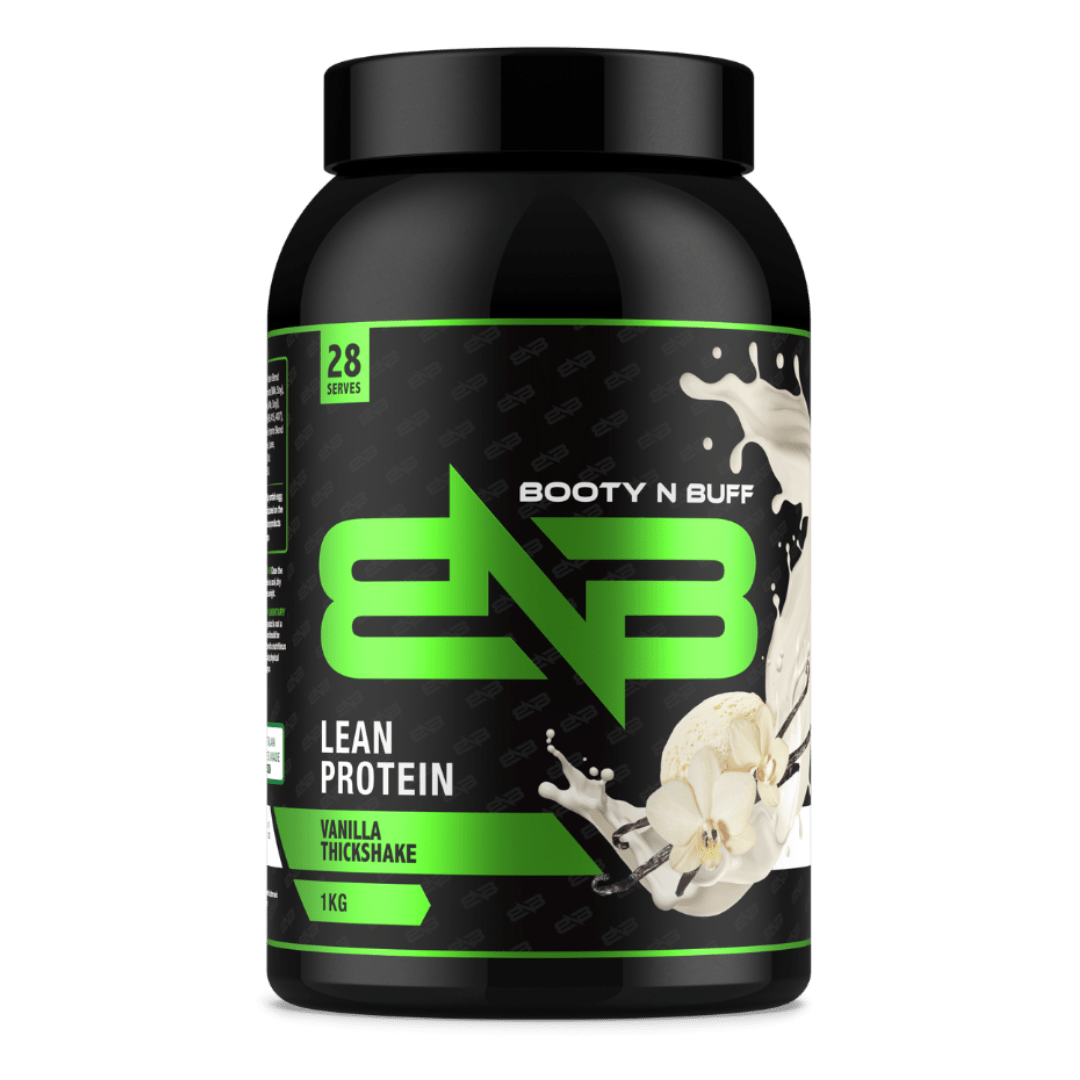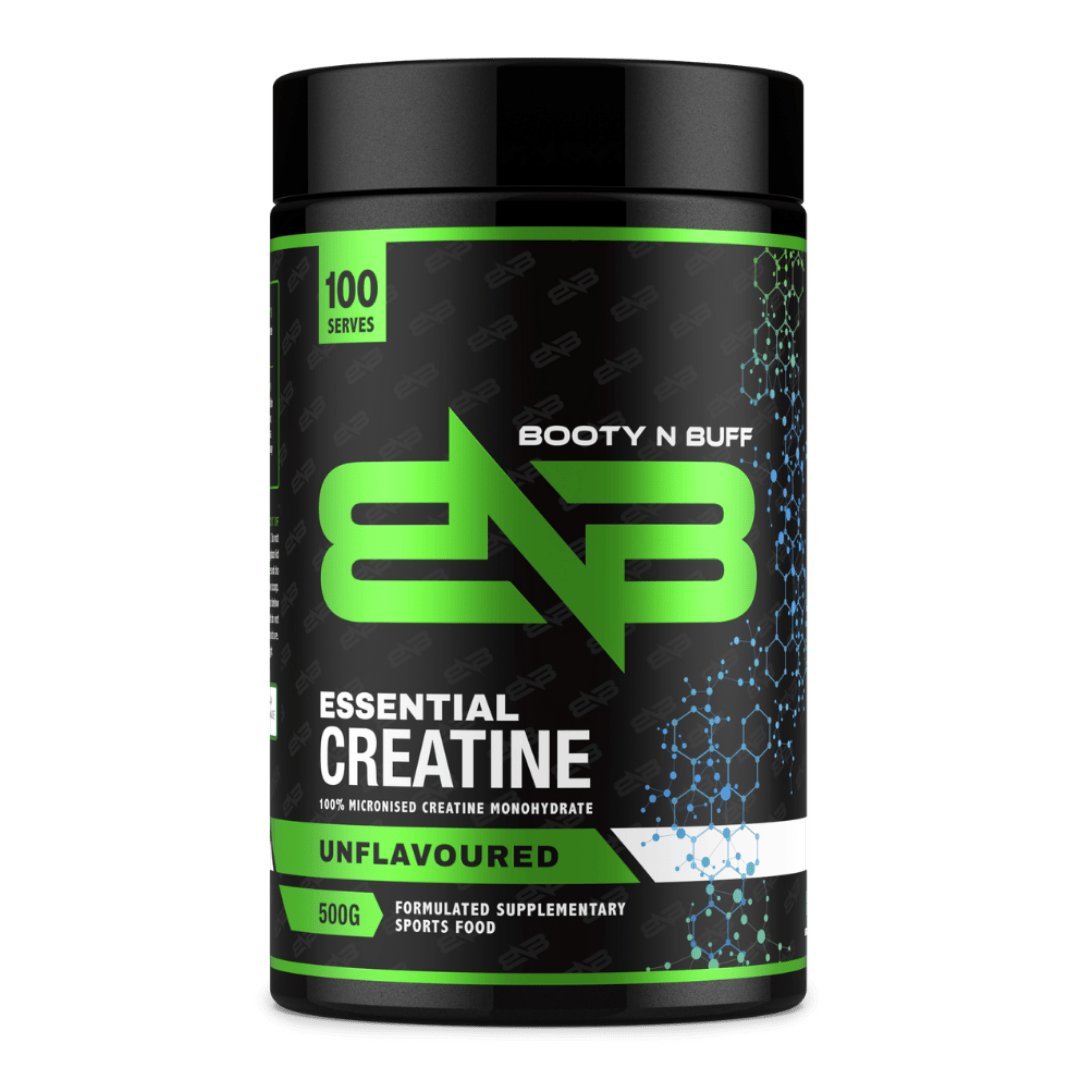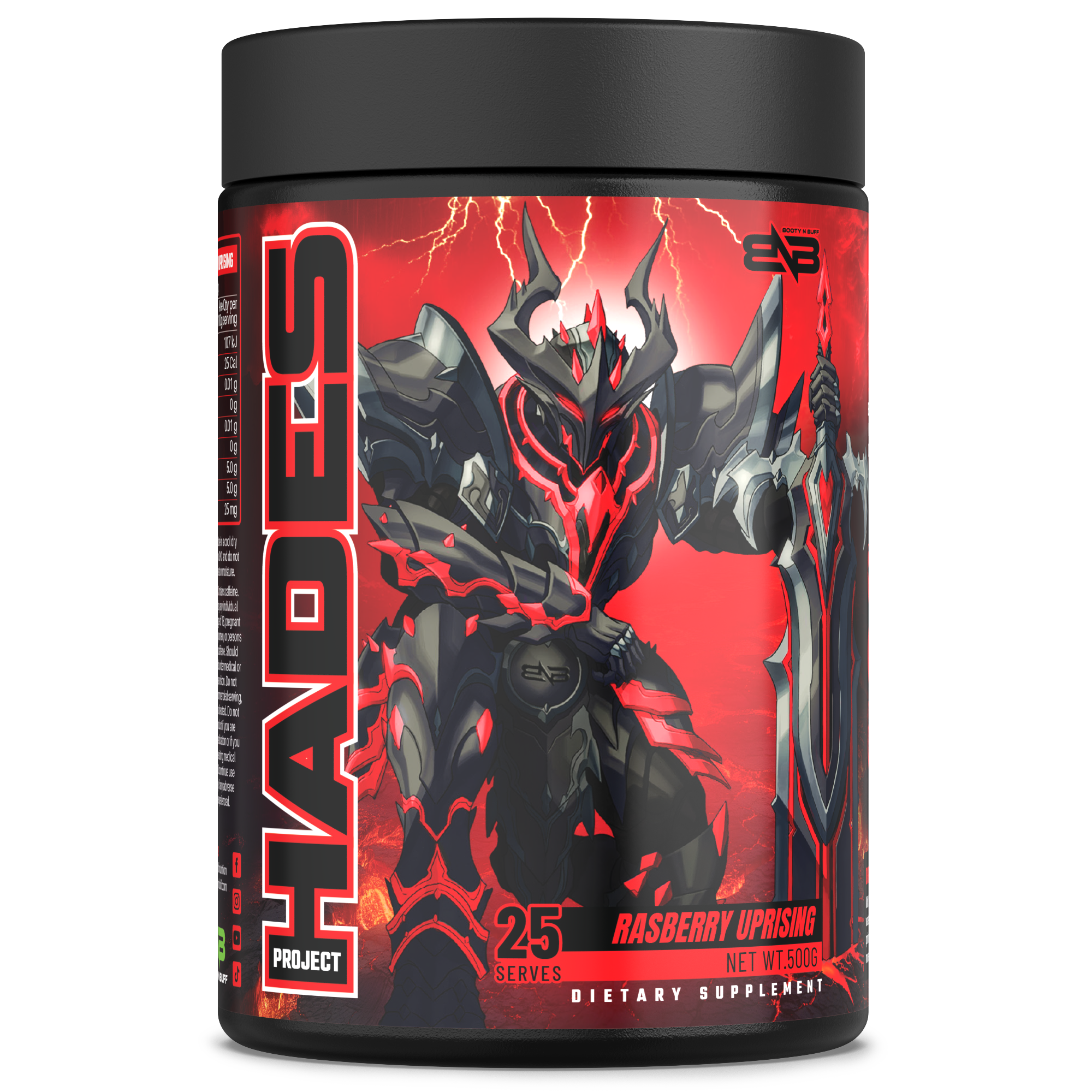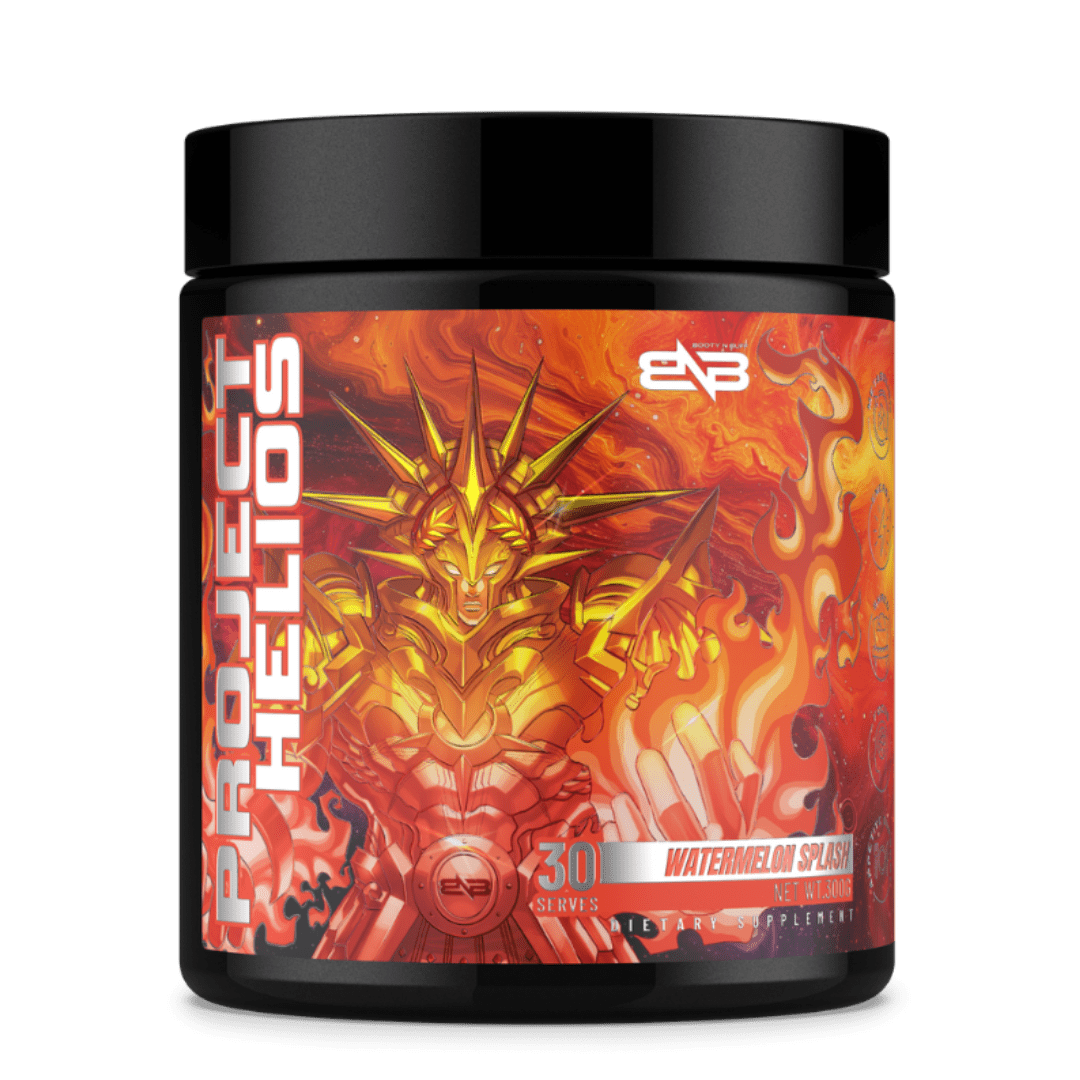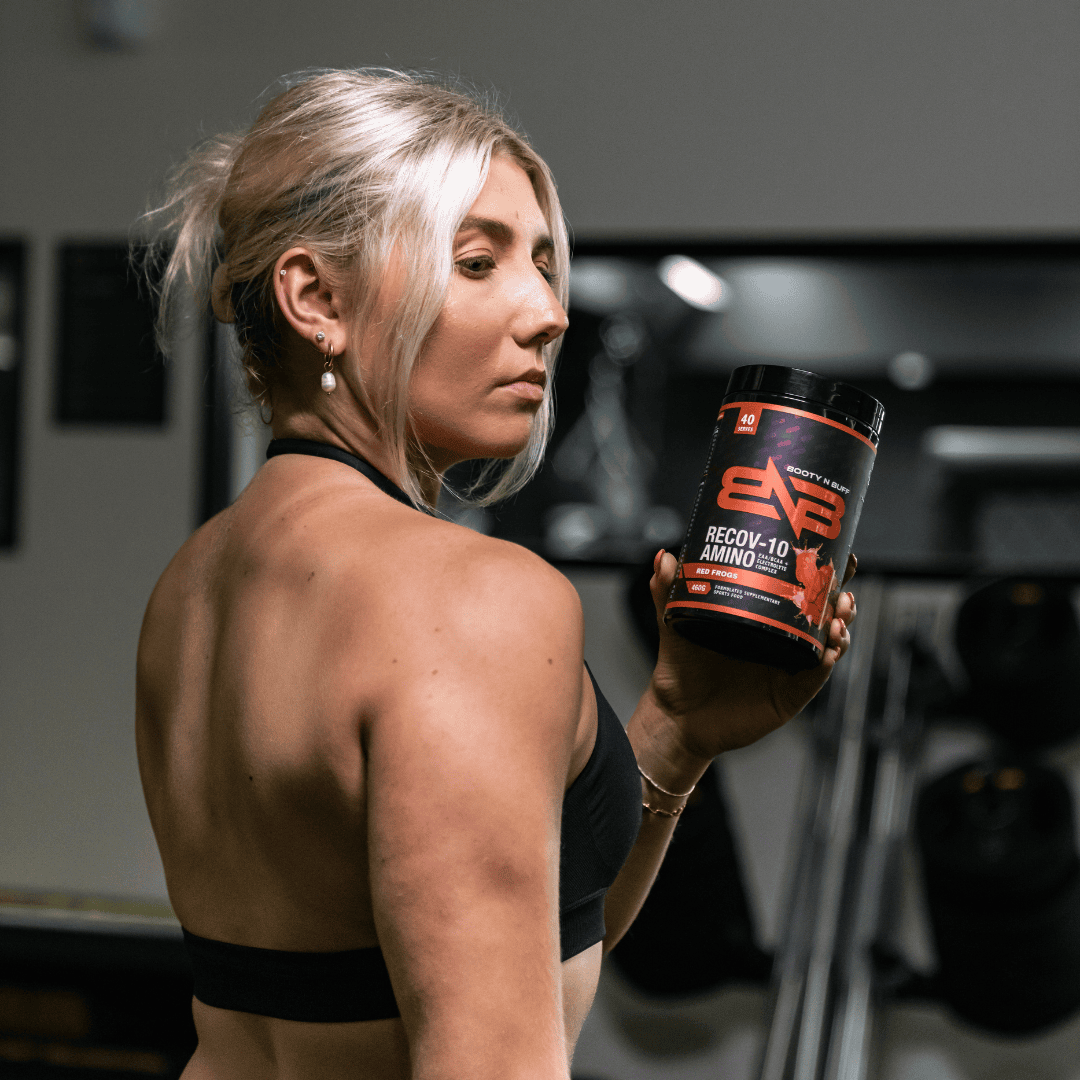Cutting Through the Noise on Creatine
Walk into any gym, and you'll hear a dozen different opinions on creatine. One person swears it's the secret to their new personal record, while another whispers about kidney damage and hair loss. It’s one of the most researched supplements on the planet, yet it's surrounded by more myths than a Greek god. Here at Booty N Buff, we don't deal in whispers or "bro-science." We deal in evidence. That's why we're going to dismantle the nonsense and give you the definitive guide to what is arguably the most effective, safest, and most studied performance supplement ever discovered.
The confusion isn't accidental. The supplement industry is notorious for hype and misinformation, creating a "trust gap" that leaves many people confused and skeptical. This environment of fear and doubt is often exploited by brands pushing newer, more expensive, and far less-studied alternatives to the tried-and-true original. They market these "advanced" formulas with vague promises of fewer side effects or better absorption, despite a glaring lack of scientific evidence to back up their claims. This article is the antidote to that confusion. Our mission is to serve as your comprehensive, one-stop resource, built on the highest standard of scientific evidence. We will lean heavily on the landmark “International Society of Sports Nutrition (ISSN) position stand: safety and efficacy of creatine supplementation in exercise, sport, and medicine”, a comprehensive review of hundreds of studies that represents the global scientific consensus on the topic.
Over the course of this guide, you will learn everything you need to know to make an informed decision. We will cover what creatine is and how it really works in your body. We will explore the mountain of evidence supporting its benefits for performance, strength, and muscle growth. We will then take a deep, evidence-based dive into busting the most common and persistent myths one by one. Finally, we will give you a practical playbook on how to use it effectively and reveal the surprising benefits of creatine that go far beyond the gym, impacting brain health, healthy aging, and more. Consider this your roadmap to understanding the truth about creatine.
What is Creatine, Really? Your Body's High-Performance Battery Pack
Before we can tackle the myths, it's crucial to understand what creatine is—and what it isn't. Contrary to some of the more outlandish claims, creatine is not a synthetic drug, a hormone, or an anabolic steroid. It is a completely natural compound that your own body produces every single day.
It's Natural, Not Synthetic
Creatine is an organic compound derived from three amino acids: arginine, glycine, and methionine. Your liver, kidneys, and pancreas naturally synthesize about 1-2 grams of creatine daily to support your basic energy needs. You also consume it through your diet, primarily from animal products like red meat and fish. In fact, the name "creatine" is derived from the Greek word for meat, kreas. About half of the daily requirement for a typical person is produced by the body, while the other half must be obtained from diet or, as we'll discuss, supplementation. The creatine you get in a high-quality supplement is the exact same molecule your body produces and gets from food; supplementation simply provides it in a more concentrated, efficient, and cost-effective dose.
The ATP-PCr System Explained (The Battery Analogy)
To understand why creatine is so effective, we need a quick lesson in cellular energy. The direct source of energy for almost every process in your body, especially explosive muscle contractions, is a molecule called Adenosine Triphosphate (ATP).
Think of ATP as the cash in your wallet—it's the only currency your muscles can spend for immediate, high-power work. The problem is, your muscles only store a very small amount of ATP enough for just a few seconds of all-out effort, like a single heavy lift or a short, powerful sprint.
Once you use that ATP, it loses a phosphate group and becomes Adenosine Diphosphate (ADP), which is like a spent battery. This is where creatine comes in. Inside your muscle cells, most creatine is stored as phosphocreatine (PCr)—creatine with a high-energy phosphate group attached. Phosphocreatine acts as a rapid recharger. It generously donates its phosphate group back to the "spent" ADP, instantly recycling it back into usable ATP. This process is known as the phosphocreatine (ATP-PCr) system, and it's your body's primary energy source for short, maximal-effort activities.
Supplementing with creatine is like installing a bigger, faster-charging battery pack in your muscles. By increasing your intramuscular stores of phosphocreatine, you enhance your body's ability to rapidly regenerate ATP during intense exercise. It doesn't give you artificial or unnatural energy; it supercharges your body's own natural ability to produce its most explosive energy source. This allows you to push harder for longer, squeezing out those extra one or two reps in a set or maintaining your sprinting speed for a few seconds more. It is this enhanced quality and volume of work, repeated over time, that leads to greater adaptations in strength, power, and muscle mass.
This fundamental mechanism of high-speed energy recycling is the unifying principle that explains nearly all of creatine's benefits. While its effects are most famous in muscle, it's important to remember that creatine is not just a "muscle supplement." It's a "high-demand cellular energy supplement." Your brain, for instance, is an incredibly energy-hungry organ, consuming up to 20% of your body's total energy. It, too, relies on this same phosphocreatine system to fuel demanding cognitive processes. This is why, as we'll explore later, the benefits of creatine extend far beyond physical performance and into the realm of cognitive function and overall health.
The Proven Benefits: More Strength, More Muscle, Better Performance
Now that we understand the "how," let's move on to the results. The performance-enhancing effects of creatine are not a matter of debate in the scientific community. They are a well-established fact, supported by hundreds of peer-reviewed studies conducted over several decades.
The Gold Standard Ergogenic Aid
The scientific consensus is best summarized by the International Society of Sports Nutrition (ISSN). In their official position stand, after reviewing the vast body of literature, they make a powerful and definitive statement, calling creatine monohydrate "the most effective ergogenic nutritional supplement currently available to athletes in terms of increasing high-intensity exercise capacity and lean body mass during training". This is not a casual endorsement. It is a conclusion based on an overwhelming weight of evidence, cementing creatine's status as the undisputed king of legal, safe performance supplements.
Breakdown of Performance Gains
The benefits of saturating your muscles with creatine manifest in several key areas, all stemming from the ability to perform more high-quality work during training sessions.
-
Increased Strength and Power: The most immediate and noticeable effect of creatine supplementation is an improvement in strength and power output during short, explosive efforts. By rapidly replenishing ATP, creatine allows you to maintain a higher force output for longer. This translates directly to lifting heavier weights, performing more repetitions with a given weight, and generating more power in activities like sprinting and jumping. Over time, this enhanced training stimulus forces your body to adapt by building stronger muscles.
-
Enhanced Lean Body Mass: When combined with a consistent resistance training program, creatine supplementation has been consistently shown to lead to greater increases in muscle mass compared to training alone. This is not just "water weight," a myth we will dismantle shortly. The primary driver of this muscle growth (hypertrophy) is the increased training volume and intensity that creatine enables. By allowing you to consistently push your muscles harder, you create a more powerful stimulus for growth and adaptation.
-
Improved Recovery and Injury Prevention: The benefits of creatine extend beyond what happens during the workout itself. The ISSN highlights a growing body of research demonstrating that creatine can significantly enhance post-exercise recovery. It has also been shown to play a role in injury prevention by reducing the severity of muscle damage and inflammation following intense exercise. Furthermore, some studies suggest it may help athletes better tolerate heavy training loads and even improve thermoregulation, making it a valuable tool for maintaining performance and health throughout a demanding training season. Perhaps most surprisingly, emerging research indicates that creatine may have neuroprotective effects, potentially reducing the severity of damage from concussions or spinal cord injuries, further cementing its role as a multifaceted health and performance supplement.
The Great Creatine Myths: Busted by Science
Despite the mountain of evidence supporting its safety and efficacy, creatine remains one of the most misunderstood supplements on the market. Let's systematically address and dismantle the most common myths using direct scientific evidence.
Myth #1: "Creatine Will Wreck Your Kidneys."
-
The Claim: This is perhaps the most pervasive and dangerous myth. The fear is that supplementing with creatine puts an undue strain on the kidneys, which are responsible for filtering its metabolic byproduct, creatinine, from the blood.
-
The Science: This claim has been exhaustively studied and thoroughly debunked. The ISSN position stand is unequivocal: there is "no scientific evidence that the short- or long-term use of creatine monohydrate has any detrimental effects on otherwise healthy individuals". This conclusion is based on numerous well-controlled clinical trials, including long-term studies where participants supplemented with high doses (up to 30 grams per day) for as long as five years without any negative impact on markers of renal function. The scientific community agrees that for individuals with healthy, functioning kidneys, creatine supplementation within recommended guidelines is perfectly safe.
-
The Responsible Caveat: It is important to distinguish between healthy individuals and those with pre-existing medical conditions. As with any dietary supplement, individuals with a known history of kidney disease or impaired renal function should exercise caution and consult with their doctor before beginning creatine supplementation. This is not because creatine is inherently dangerous, but because any significant change in dietary intake should be medically supervised in such cases.
Myth #2: "It's Basically a Steroid."
-
The Claim: This damaging misconception is often fueled by sensationalized media reports that irresponsibly lump all performance-enhancing substances together. The association is completely false and demonstrates a fundamental misunderstanding of basic biology.
-
The Science: Creatine and anabolic steroids are worlds apart in every conceivable way.
-
Chemical Structure: Creatine is a naturally occurring amino acid derivative. Anabolic steroids are synthetic drugs designed to mimic testosterone, the primary male sex hormone. Their chemical structures are entirely different.
-
Mechanism of Action: Creatine works within the cellular energy system by helping to recycle ATP. It has no direct effect on your hormones. Anabolic steroids work by directly manipulating the body's hormonal (endocrine) system to dramatically increase muscle protein synthesis, a mechanism that comes with a host of serious health risks.
-
Legal and Safety Status: Creatine is a legal dietary supplement regulated by food safety authorities worldwide and is permitted for use by all major sports organizations. Anabolic steroids are controlled substances, illegal for non-medical use in most countries, and banned by all anti-doping agencies due to their significant potential for harm.
-
-
The Verdict: To be perfectly clear: Creatine is not a steroid. It is not a hormone. It does not manipulate your endocrine system. Lumping them together is scientifically illiterate and irresponsible scaremongering.
Myth #3: "Creatine Will Make You Bald."
-
The Claim: This is one of the most persistent modern myths, causing a great deal of hesitation, particularly among men.
-
The Origin of the Myth: This widespread fear can be traced back almost entirely to a single, small study from 2009. The study involved a group of college-aged rugby players and found that after a creatine loading phase, they had increased levels of a hormone called Dihydrotestosterone (DHT). Since DHT is known to be a key factor in male pattern baldness (it can cause hair follicles to shrink in genetically susceptible individuals), the connection was made, and the myth took flight.
-
The Counter-Evidence: What is often left out of the story is the vast body of research since that 2009 study. The scientific community has investigated this claim repeatedly, and the evidence simply does not support a link between creatine and hair loss.
-
First, the original study did not actually measure hair loss; it only measured a change in a hormone marker.
-
Second, numerous subsequent studies have failed to replicate this finding. The majority of research has shown that creatine supplementation does not significantly increase total testosterone, free testosterone, or the DHT levels that the original study reported.
-
Most importantly, a recent 12-week randomized controlled trial was designed to address this question directly. Researchers gave participants either creatine or a placebo and directly assessed hair follicle health and hormone levels. Their conclusion? There were no significant differences in DHT levels, the DHT-to-testosterone ratio, or any hair growth parameters between the groups. The study provided "strong evidence against the claim that creatine contributes to hair loss". The current scientific consensus is that there is no compelling evidence to support the idea that creatine causes baldness.
-
Myth #4: "It Causes Dehydration and Cramping."
-
The Claim: A common piece of gym-lore is that creatine "sucks up" water from the rest of the body to store it in the muscles, leading to systemic dehydration and an increased risk of muscle cramps.
-
The Science: This is a classic case of misinterpreting a physiological mechanism. Creatine does increase water content, but it does so inside the muscle cell (intracellularly). This process, known as cell volumization, is actually a positive sign. A well-hydrated muscle cell is a more anabolic (pro-growth) environment and functions better. This process does not cause systemic dehydration by pulling water from other tissues. In fact, the ISSN position stand directly refutes this myth, stating that there is no solid evidence to support claims of dehydration or cramping, and that creatine supplementation may even improve an athlete's ability to handle heat and reduce the risk of heat-related illness.
-
The Practical Advice: As with any active individual, maintaining adequate hydration throughout the day is crucial for optimal health and performance. This is a fundamental principle of good nutrition, not a special precaution required only for creatine users.
Myth #5: "You'll Just Gain Water Weight."
-
The Claim: This myth dismisses the lean mass gains from creatine as being "just water," implying that it's not "real" muscle and will disappear the moment you stop taking it.
-
The Science: This is a half-truth that misses the entire point of creatine's benefit. It's crucial to differentiate between the initial, transient weight gain and the long-term, sustained results.
-
The Initial Phase: When you first begin supplementing with creatine, especially with a loading phase, you will likely experience a rapid increase in body weight of 1-2 kg in the first week. This initial gain is primarily due to water being drawn into the muscle cells, a direct result of the cell volumization effect we just discussed.
-
The Long-Term Gains: This initial water retention is not the end goal; it's a secondary effect. The primary, long-term benefit of creatine is its ability to allow you to train harder, lift heavier, and complete more total work volume in the gym. This enhanced training stimulus, sustained over weeks and months, is what drives the actual accretion of contractile protein and the growth of new, "real" muscle tissue. The initial water weight is a sign the creatine is working to saturate your cells; the long-term lean muscle gain is the ultimate result of the improved performance it enables.
-
Section 5: Your Creatine Playbook: How to Use It for Maximum Results
Now that we've cleared the air and established the science, let's get practical. Using creatine effectively is simple, but following a science-backed protocol can help you get the most out of it.
Dosing Done Right: The Loading Phase vs. Maintenance
When you start taking creatine, the goal is to saturate your muscle cells with it. There are two primary strategies to achieve this, and both are effective.
-
The Loading Protocol: This is the quickest method to fully saturate your muscle stores and begin seeing performance benefits. It involves taking a higher dose for a short period, followed by a lower daily maintenance dose. The standard loading protocol is to consume approximately 0.3 grams of creatine per kilogram of body weight per day for 5-7 days. For most people, this works out to about 20-25 grams per day. It's best to split this total amount into 4-5 smaller doses (e.g., 5 grams each) throughout the day to improve absorption and minimize any potential for stomach discomfort. After the loading phase, you drop down to a daily maintenance dose of 3-5 grams to keep your muscle stores topped up.
-
The Maintenance-Only Protocol: If you're not in a hurry or have a sensitive stomach, a simpler approach is to skip the loading phase altogether. You can simply start by taking the standard maintenance dose of 3-5 grams of creatine per day. While this method is more convenient, it will take longer—typically 3-4 weeks—to fully saturate your muscle stores and experience the full performance benefits. In the long run, both methods lead to the same level of muscle saturation and the same performance outcomes.
The choice is yours. If you want the fastest possible results, the loading protocol is the way to go. If you prefer simplicity and want to minimize any risk of mild gastrointestinal issues, the maintenance-only approach is a perfectly valid and equally effective long-term strategy.
| Strategy | Daily Dose | Duration | Pros | Cons |
| Loading Phase | 0.3 g/kg (20-25g), split | 5-7 Days | Fastest way to saturate muscles; quicker performance benefits. | Higher potential for mild GI distress; more inconvenient. |
| Maintenance Only | 3-5g | Ongoing | Simpler; minimal risk of GI issues; just as effective long-term. | Takes longer (3-4 weeks) to fully saturate muscles. |
| Brain Peformance | 10-20g | Ongoing | Recent research shows increases in cognitive and memory with sustained larger doses. | Still relevantly new research and more studies required to ensure effectiveness. |
Timing and Nutrient Synergy: Getting the Most Out of Every Scoop
While consistency is the most important factor, you can slightly optimize creatine's effects with smart timing and nutrient pairing.
-
Nutrient Synergy: Research has shown that consuming creatine with a source of carbohydrates and/or protein can enhance its uptake and retention by the muscles. This is believed to be due to the insulin spike caused by carbs and protein, which can help drive more creatine into the muscle cells. A simple and effective strategy is to mix your daily 3-5 gram dose of creatine directly into your post-workout protein shake, which ideally already contains both protein and a fast-digesting carbohydrate source. Taking it with any balanced meal will also be effective.
-
The Timing Debate: There has been some debate about whether it's better to take creatine before or after a workout. While some studies suggest a slight advantage to taking it post-workout for maximizing lean mass and strength gains, the difference is likely small. The most critical factor is consistency. Taking it daily is far more important than worrying about the exact minute you consume it. A good rule of thumb is to take it sometime close to your training session on workout days and at any convenient time with a meal on rest days to maintain saturation. Read more about creatime timing in our previous blog here.
Stick to the Gold Standard: Why Creatine Monohydrate is King
Walk down the supplement aisle and you'll see a dizzying array of creatine products: Creatine Hydrochloride (HCl), Creatine Ethyl Ester (CEE), buffered creatine, liquid creatine, and more. These are often sold at a premium price with claims of superior absorption, increased potency, or fewer side effects.
Don't fall for the marketing hype. The science is overwhelmingly clear on this point: Creatine Monohydrate is the most extensively studied and clinically effective form of creatine available. It has been the subject of hundreds of studies and has consistently been shown to be highly effective for increasing muscle uptake and improving high-intensity exercise capacity. While other forms may be more soluble in water, there is no compelling scientific evidence to suggest they are more effective in your body. In fact, some forms, like creatine ethyl ester, have been shown in studies to be less effective than standard monohydrate because they degrade more rapidly into the waste product creatinine.
At Booty N Buff, we focus on what works. When it comes to creatine, decades of research have proven that simple, affordable creatine monohydrate is the undisputed gold standard.
Section 6: More Than Just Muscle: The Surprising Brain and Longevity Benefits
For years, creatine was pigeonholed as a supplement exclusively for bodybuilders and powerlifters. However, cutting-edge research is revealing its profound benefits for a much wider range of goals and populations, reframing it as a versatile tool for overall health and vitality.
A Boost for Your Brain: Fueling Cognitive Performance
As mentioned earlier, your brain is a metabolic powerhouse with extremely high energy demands. Just like your muscles during a heavy set, your brain relies on the ATP-PCr system to fuel rapid, energy-intensive cognitive tasks. By increasing the availability of phosphocreatine in the brain, supplementation can have a direct and positive impact on mental performance.
A growing body of research has shown that creatine can enhance cognitive function, particularly in situations that place a high demand on the brain. Studies have demonstrated improvements in domains like short-term memory, intelligence, and reasoning. These benefits appear to be most pronounced under stressful conditions, such as during complex problem-solving or following sleep deprivation, where creatine can help reduce mental fatigue and maintain cognitive clarity. Furthermore, researchers are actively investigating creatine's potential neuroprotective role in mitigating the effects of neurodegenerative diseases like Parkinson's, Huntington's, and even Alzheimer's, where impaired brain energy metabolism is a key feature.
A Key Supplement for Vegans and Vegetarians
The benefits of creatine are not just about maximizing peak performance; for some, it's about restoring and optimizing function. This is especially true for individuals following plant-based diets. Since the primary dietary sources of creatine are meat and fish, vegetarians and vegans consistently have significantly lower baseline levels of creatine stored in their muscles and blood compared to omnivores.
Because of this lower starting point, they often experience even more pronounced benefits from supplementation. Studies show that when vegetarians supplement with creatine, they see robust improvements in lean tissue mass, strength, endurance, and even cognitive function, often bringing their levels up to or even exceeding those of their omnivorous counterparts. For any plant-based individual looking to optimize their physical and mental performance, creatine supplementation is one of the most logical and effective strategies available to bridge a common dietary gap.
Strength for Life: Creatine for Healthy Aging
Perhaps one of the most exciting and impactful applications of creatine is in the promotion of healthy aging. One of the greatest challenges we face as we get older is the progressive, age-related loss of muscle mass and strength, a condition known as sarcopenia. This decline is a major predictor of reduced mobility, increased risk of falls and fractures, and a general loss of independence.
The evidence is now compelling that creatine supplementation, particularly when combined with a sensible resistance training program, is a powerful tool for older adults to combat sarcopenia. Research has consistently shown that for adults over 55, this combination helps to better preserve muscle mass, significantly improve muscle strength, enhance functional performance in everyday tasks (like climbing stairs and carrying groceries), and may even help maintain bone mineral density. This research effectively reframes creatine from a supplement for the young athlete to a valuable tool for maintaining strength, function, and vitality across the entire lifespan. It's not just about building a better physique; it's about building a better, more resilient future.
Section 7: The Final Verdict: Your Questions Answered
We've covered a lot of ground, from cellular energy to cognitive enhancement. Let's distill it all down into the key takeaways with a simple Q&A.
-
Is creatine safe?
Yes. For healthy individuals, the overwhelming body of scientific evidence shows that creatine monohydrate is one of the safest and most well-tolerated supplements you can take. Extensive research, including studies lasting up to five years, has confirmed its excellent safety profile.
-
Is it effective?
Absolutely. It is the most proven legal supplement on the market for its intended purpose. The International Society of Sports Nutrition calls it the most effective nutritional supplement available for improving high-intensity exercise performance and building lean muscle mass.
-
Who should consider it?
The list is longer than you might think. It's a fantastic tool for any athlete or gym-goer looking to improve their strength, power, and recovery. But its benefits extend to vegetarians and vegans seeking to bridge a common dietary gap, older adults aiming to fight age-related muscle loss and maintain vitality, and anyone looking for a potential cognitive boost under stressful conditions.
-
Which kind should I buy?
Stick to the gold standard: Creatine Monohydrate. It is the most researched, most proven, and most cost-effective form on the market. There is no compelling scientific reason to pay a premium for other, less-studied forms.
The bottom line is this: creatine works, and it's incredibly safe. Don't let outdated myths and scare tactics hold you back from your potential. Your fitness journey should be built on a foundation of hard work, smart nutrition, and solid science. We're here to provide the science, so you can focus on the hard work. Now go earn those results.

